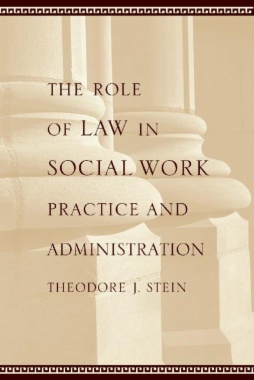The strong nexus between law and social work is beyond dispute: the law informs day-to-day social work practice and administration, and social workers are employed by the courts. Moreover, they work collaboratively with attorneys in legal aid offices, public defenders'offices, and other law enforcement settings, interviewing clients, preparing reports for use in court, interpreting social science information, and providing consultation on how best to approach client problems. This book addresses the relationship between the professions of social work and law and helps social workers develop the knowledge necessary to practice in a legal environment. The author focuses on how the law affects the day-to-day practice of social work; the creation, administration, and operation of social service agencies; and the ways in which social workers and attorneys collaborate to serve the public.

